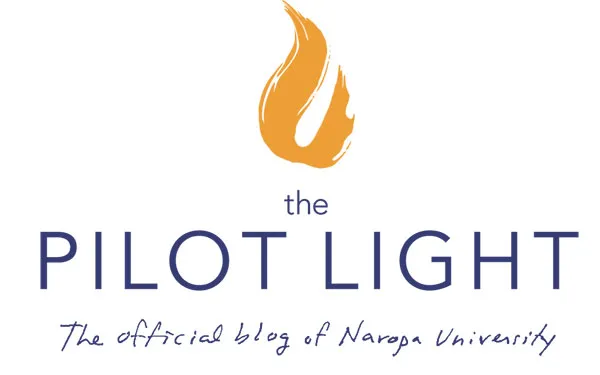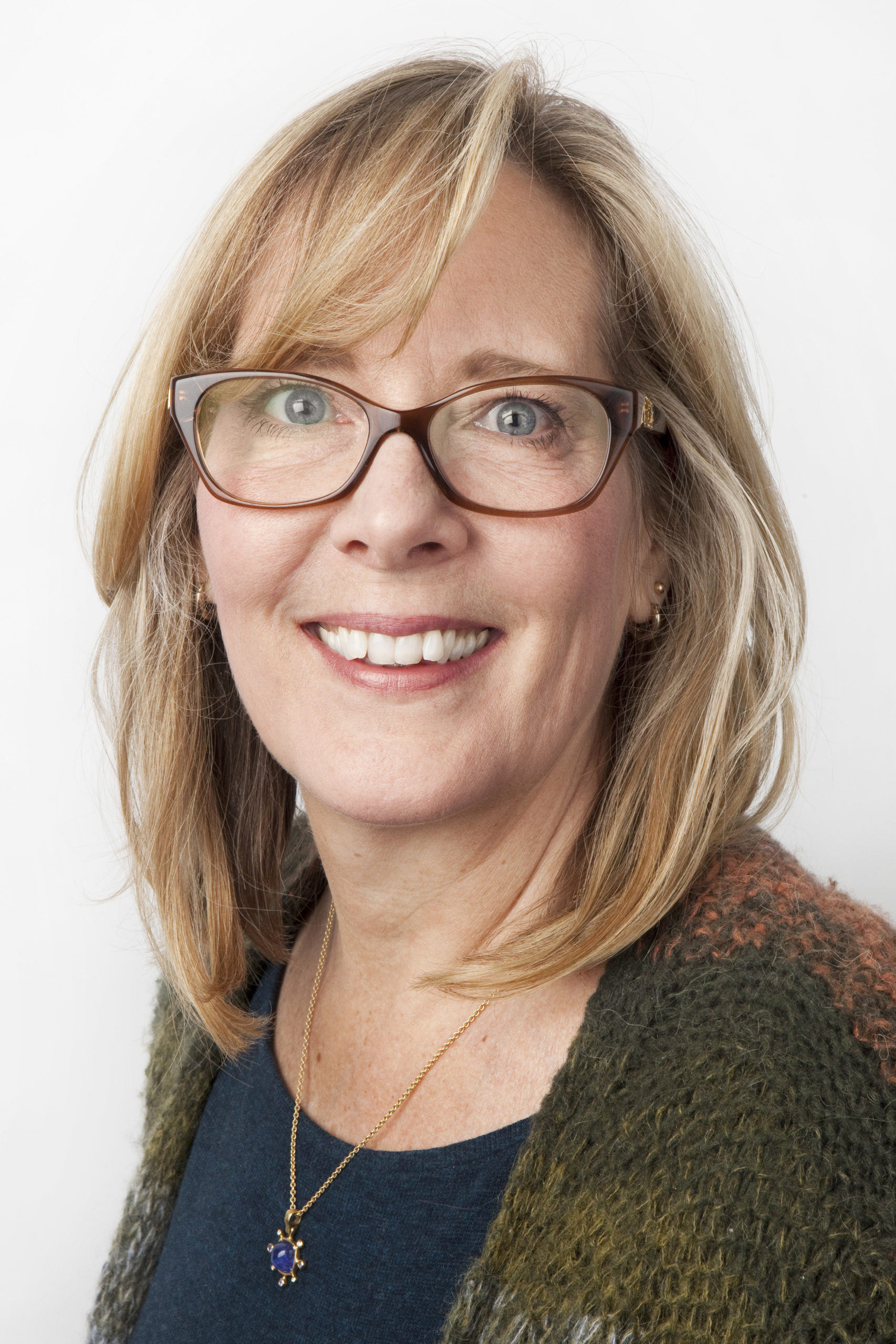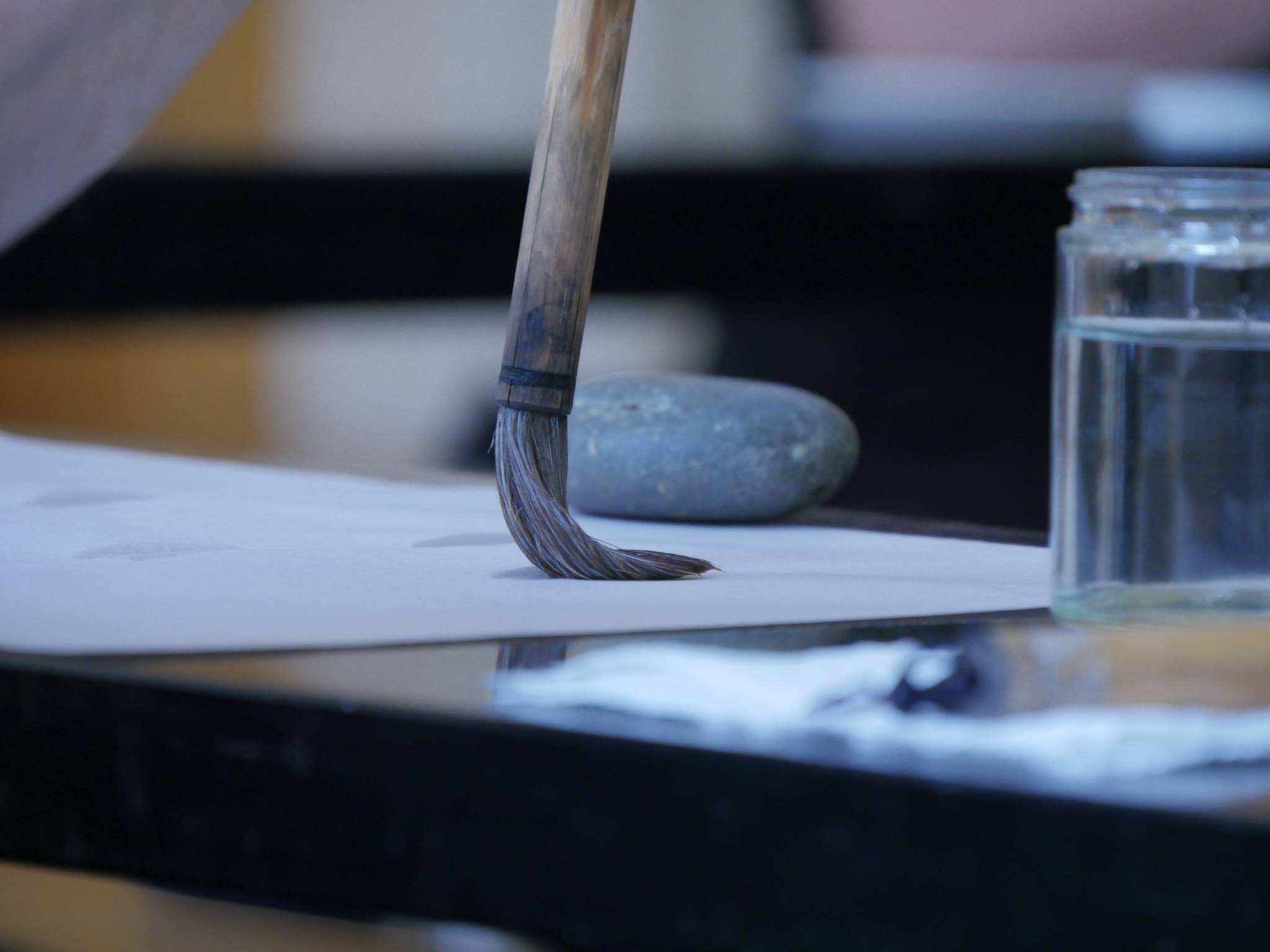
Sue Wallingford, MA, LPC, ATR is director of Boulder Art Therapy Collective, Chair of the Mindfulness Based Transpersonal Counseling program in the Graduate School of Counseling Psychology at Naropa University, Naropa Alumni. She also spearheads the project Naropa International: Partnership for Social Justice, formerly known as Naropa Community Art Studio – International (NCAS- I). This piece is part of a series featuring her work as an alumni and Art Therapist. Excerpts from an interview with Amanda Hart, a graduate student studying Transpersonal Clinical Mental Health Counseling and Art Therapy at Naropa are included.
“… The art just speaks the truth more, and I really, really, really, trust that. It’s also about that I don’t know what it means – the client knows the meaning behind what they create, so I really try to follow that.”
Director of Boulder Art Therapy Collective and Chair of the Mindfulness Based Transpersonal Counseling program in the Graduate School of Counseling Psychology at Naropa University (GSC), Sue Wallingford is also an alumni of the program and its Art Therapy concentration. Her work is informed by experience working in prisons, mental health agencies, and state institutions; work that took place before coming to Naropa’s graduate program in transpersonal clinical mental health counseling and art therapy.
Now a licensed counselor and registered art therapist, Sue holds a perspective unique to graduates from Naropa’s Transpersonal Clinical Mental Health Counseling program:
“I hold a transpersonal perspective—I don’t talk about it, and my clients don’t even know that I am a transpersonal therapist unless they ask, but I just hold the perspective that there is something bigger at work here… I trust that, and I trust their own inherent wisdom very deeply… and then the art becomes one of the partners in that.”
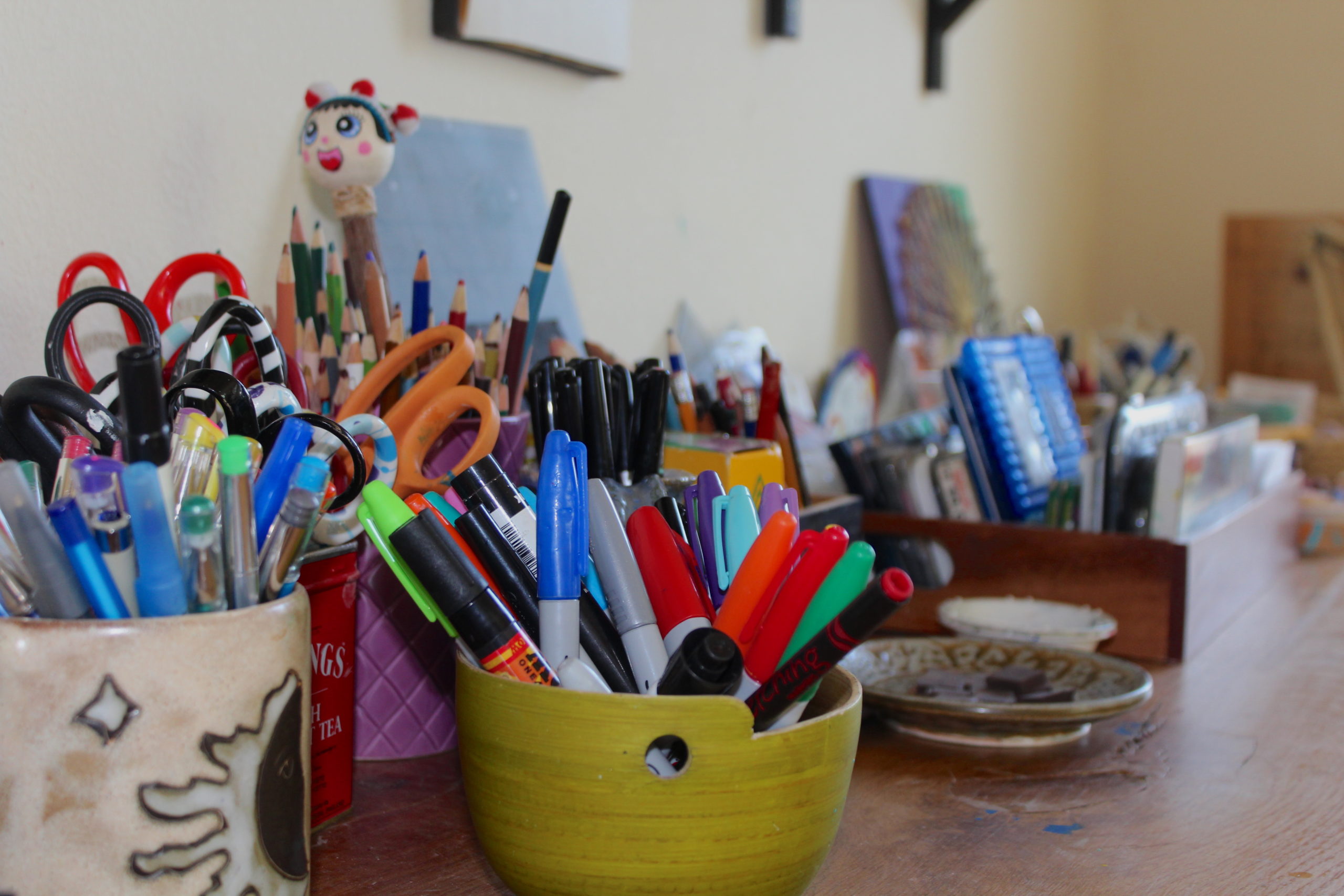
Photo by Karen Wills
Naropa University offers both undergraduate (BA Contemplative Art Therapy) and graduate (MA Transpersonal Clinical Mental Health Counseling and Art-Based Counseling) degrees in art therapy. Our undergraduate program, Contemplative Art Therapy, draws from both eastern and western models of health and philosophy. Practices such as meditation, mindfulness training, and intra-personal introspection are central components to the program. There’s a big push for the student to understand themselves, their own inner workings, and how this wisdom can be used within the bigger community.
Following recent trends in higher education, we started offering an online art therapy BA degree on top of our traditional on-campus program.
The graduate program’s transpersonal perspective takes the personal insights gained through contemplative practices and challenges the student to work with them to understand some of the more unconscious modes of their experiences. These are the transpersonal experiences—experiences that occur on a level that is usually beyond verbal language or cognitive understanding, yet hold incredible value and wisdom.
“Transpersonal really looks at symptoms as kinds of gifts from the soul. You are having a symptom—a pattern of behavior that’s uncomfortable, distressing, and that typically you want to push away—which is what we want to do and it’s what we are trained to do. ‘It’s a bad feeling? Push it away, get rid of it, ignore it.’
The Transpersonal perspective helps you to see it and instead say, ‘Wow, this is showing up and this is a gift. This is a symptom that needs attending to,’ like a child, ya know? It’s saying, ‘Ok what is it? Something is hurting, let’s not push away, let’s lean into it and see what it’s about—see the wisdom in it and then go from there.”
That’s a transpersonal perspective and when you’ve got art with that, the art will sometimes show those patterns of behavior.”
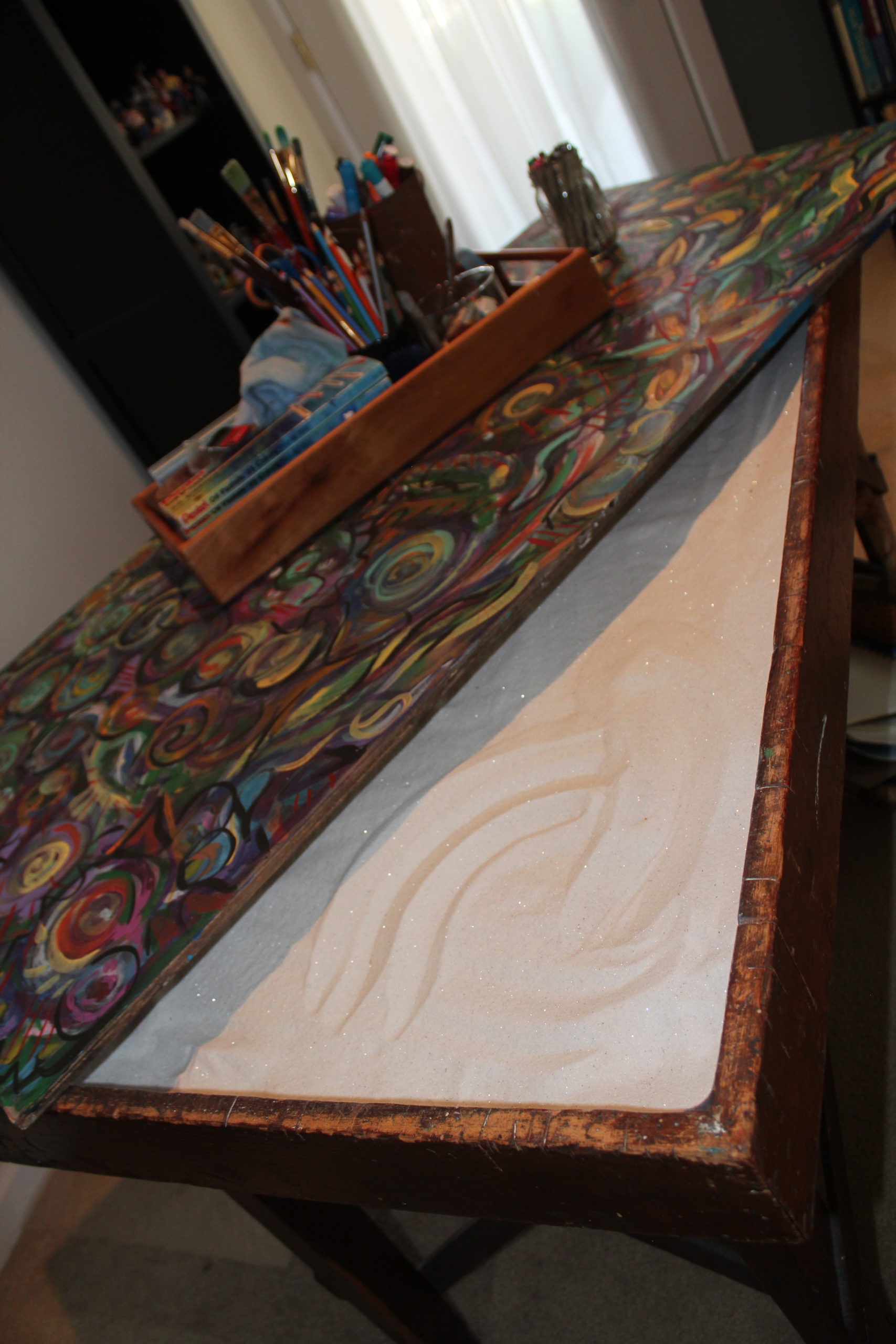
In a western culture that places highest value on intellectual understanding, many of our transpersonal experiences go discredited or are deemed unhealthy. However, not everything we know can be quantified or stated clearly in concise written or verbal expression. These less cognitive, or intellectualized experiences permeate much of our relational actions and contain highly valuable information about our human experience. Holding a transpersonal perspective as a therapist means that every aspect of a client’s experience holds value and information that must be welcomed and given space for expression.
Art therapy becomes a key tool in accessing these more non-verbal experiences and the inherent wisdom they possess. Art does not require words in order to be expressed and is often inspired by unconscious material.
“The art may be ‘ugly’, and we are trained everywhere that if it’s ugly, it’s not worth anything. Well, that’s an attack on the spirit, the soul. It is like you’re killing the image, and the image is just trying to tell you something. That happens all the time when participants are sharing their art work and they’ll say, “God, ya know I really hate this piece.” And I say, “Well, what would it be like for you to extend some compassion towards that part of your art?” Immediately, there are tears, and they’re going, ‘Uugghh.’ It’s so amazing to see that happen when you let the art speak. Something opens up, and the art gives space for something.
I just encourage clients to see themselves—because it’s not going to go away, it’s going to keep showing up saying, ‘See me,’ until you do and then it says, ‘Thank you, I can go away.'”
Follow Naropa Art Therapy on Instagram or join our Art Therapy Facebook Group.
